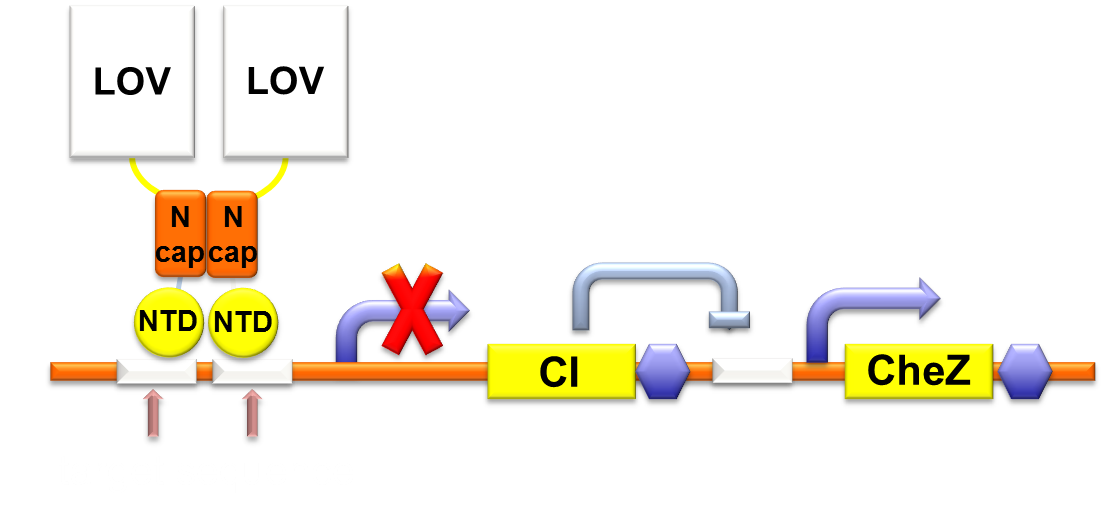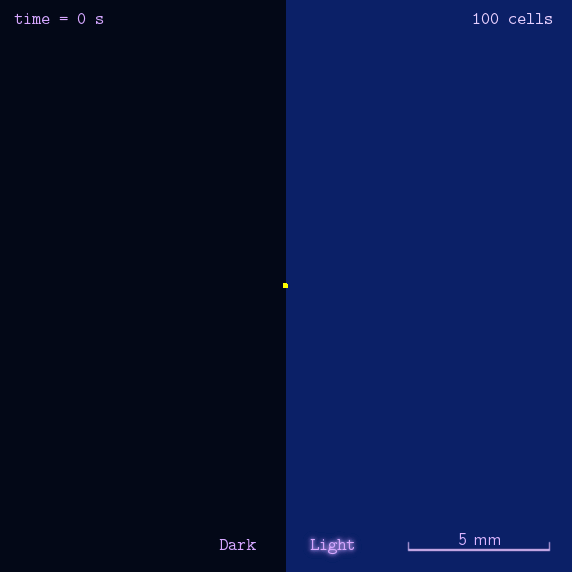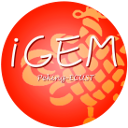Team:Peking/Project/Phototaxis/Design
From 2012.igem.org
Spring zhq (Talk | contribs) |
Spring zhq (Talk | contribs) |
||
| Line 15: | Line 15: | ||
<p class="description">Figure 1. Gene circuit for Phototaxis.</p> | <p class="description">Figure 1. Gene circuit for Phototaxis.</p> | ||
</div> | </div> | ||
| - | <p>After gathering principles and parameters of chemotaxis system, we then simulated the phototaxis system in a stochastic way to reflectively describe the phototaxis mechanism of our system. <a href= | + | <p>After gathering principles and parameters of chemotaxis system, we then simulated the phototaxis system in a stochastic way to reflectively describe the phototaxis mechanism of our system. <a href=”/Team:Peking/Modeling/Phototaxis”>Details here</a>.</p> |
<div class="floatC"> | <div class="floatC"> | ||
<img src="/wiki/images/b/b6/Peking2012_PhototaxisSPECSdot.gif" alt="Figure 2." style="width:400px"/> | <img src="/wiki/images/b/b6/Peking2012_PhototaxisSPECSdot.gif" alt="Figure 2." style="width:400px"/> | ||
Revision as of 15:55, 25 September 2012
CheZ is dephosphorylase of CheY in chemotaxis pathway. Three main characteristics actuate our consideration of CheZ. First, several experiments indicate that CheZ can effect the movement of bacteria: Increasing levels of CheZ induced by arabinose can enlarge the diameter of swarming colony. CheZ deletion causes cells to tumble incessantly, resulting in a nonmotile phenotype in semisolid agar. Reintroducing CheZ restores cell motility. Second, CheZ is commonly used as motility-control module in synthetic biology. Combination between the CheZ and quorum sensing LuxI/R part forms stripe pattern in colony. Bacteria with CheZ under the control of an atrazine binding riboswitch proves capability of atrazine chemotaxis. CheZ controlled by theophylline riboswitch of upstream random sequence acts as a colony reporter for orthogenesis. Furthermore, CheZ is included in some downsteam locomotive part of bacteria phototaxis such as Halobacterium. On this basis, we decided to use CheZ to control the mobility of the bacteria.
Through rational consideration, we embark on building the circuit. CheZ can only function at a high expression level, so we linked CheZ with strongest RBS B0034 and a high copy plasmid. The circuit of our phototaxis part consists two plasmids containing Luminesensor and CheZ, respectively. Bacteria illuminated by blue light leads to repression of CheZ expression, resulting to lack of cell motility.

Figure 1. Gene circuit for Phototaxis.
After gathering principles and parameters of chemotaxis system, we then simulated the phototaxis system in a stochastic way to reflectively describe the phototaxis mechanism of our system. Details here.

Figure 2. (pic modeling result).
As the modeling indicated, we designed several experiments to realize phototaxis. Firstly, we have to verify the function of CheZ. Two experiments were designed: the measurement of diameter of mobile (MG1655) and immobile (DH5 α and ΔCheZ MG1655) bacteria and the bacteria with CheZ under different strength of promoters: BBa_J23112, BBa_J23113, and BBa_J23114, whose relative expression levels of downstream gene are expected to be 1, 21, and 256, respectively. Sceondly, plates pasted polaroid of different transmittance are used to measure CheZ expression under different light strength. Thirdly, plot the bacteria in the center of the plate whose half is opaque. These experiments together are expected to have different diameter of colony or oval shape of colony to show the phototaxis.
 "
"














